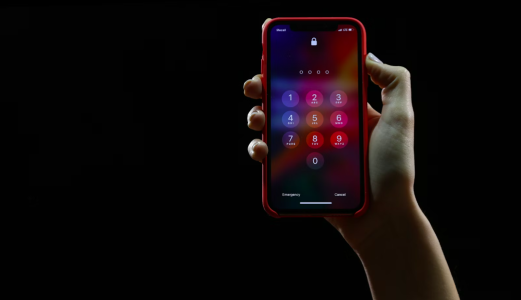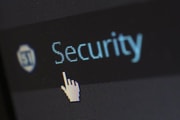Experts warn some PINs are riskier than others—is yours on the list?
- Replies 0
It’s the kind of thing most people set and forget.
Four digits, often something easy to remember—until the wrong person figures it out.
Experts are now sounding the alarm on how some of the most “recommended” PINs have quietly become top targets for cybercriminals.
And if you're still using a short PIN or a popular pattern, you could be leaving yourself wide open without even realizing it.
A number once praised for its security is now one of the worst options.
Cybersecurity expert Davey Winder points out that “As soon as you could Google what’s the safest PIN code and get 8068 returned, it became a very weak number instead.”
That’s not just true for 8068.
Other codes—6835, 7637, 8093, and 9629—have also landed on public “best PIN” lists, turning them into magnets for hackers.

For hackers using automated tools, guessing that code can take just seconds if a system doesn’t limit attempts.
What’s worse? One in 10 people are already using PINs exposed in past data breaches.
The most common? “1234”—used by nearly one in every ten people.
Using this code is like leaving a spare key under the welcome mat.
If you’re using anything like:
Also read: Is your debit card putting your money at risk? Here’s what happened to one retiree—and how to stay protected
Experts agree that the best defense is a smarter PIN.
Winder urges users to stop relying on four-digit codes entirely.
Instead, aim for a minimum of six digits—or even ten to twelve if your device allows.
Longer numbers significantly reduce the odds of a successful HACK.
Random is better than relatable. Avoid using birthdays, anniversaries, or anything someone could guess.
If it’s easy for you to remember, it’s probably easy for someone else to figure out.
Cybersecurity experts recommend using truly random sequences—generated either by tools or even something as simple as rolling dice.
Also read: Shoppers beware: Hidden card skimmers found at CVS and Walgreens—how to protect your wallet
Winder emphasized that if one PIN is compromised, everything linked to it becomes vulnerable.
Passwords can be just as dangerous. Winder also notes, “Passwords that are easy to type as well as recall. And that, right there, is your biggest mistake.”
So while it might feel convenient to reuse a phrase like "iloveyou," you’re essentially handing the keys over to a scammer.
Here’s what you can do today to boost your security:
Something like “YellowGiraffe!Runs3” is much harder to crack than “123456.”
It’s worth checking if your device supports it.
With new devices and apps launching constantly, there are more ways for scammers to get in.
For seniors who’ve watched tech evolve dramatically, staying secure now means thinking beyond convenience.
A strong PIN or password isn’t just about keeping your data safe—it’s about keeping your financial independence intact.
Read next: Walmart's new anti-theft measure at self-checkout: A step forward or a misstep?

Have you ever had a close call with a stolen PIN or password? What are your tips for remembering complex codes without writing them down? Drop your experiences in the comments. You never know—your advice might save someone else from a HACK.
Four digits, often something easy to remember—until the wrong person figures it out.
Experts are now sounding the alarm on how some of the most “recommended” PINs have quietly become top targets for cybercriminals.
And if you're still using a short PIN or a popular pattern, you could be leaving yourself wide open without even realizing it.
A number once praised for its security is now one of the worst options.
Cybersecurity expert Davey Winder points out that “As soon as you could Google what’s the safest PIN code and get 8068 returned, it became a very weak number instead.”
That’s not just true for 8068.
Other codes—6835, 7637, 8093, and 9629—have also landed on public “best PIN” lists, turning them into magnets for hackers.

Experts are now sounding the alarm on how some of the most “recommended” PINs have quietly become top targets for cybercriminals. Image Source: Yura Fresh / Unsplash
Why your four-digit PIN isn’t enough anymore
A four-digit PIN sounds secure, but there are only 10,000 possible combinations.For hackers using automated tools, guessing that code can take just seconds if a system doesn’t limit attempts.
What’s worse? One in 10 people are already using PINs exposed in past data breaches.
The most common? “1234”—used by nearly one in every ten people.
Using this code is like leaving a spare key under the welcome mat.
The most dangerous PINs and passwords in use right now
These PINs are among the worst offenders, and if yours is on this list, change it today:- 1234
- 1111
- 0000
- 1342
- 8068 (or any other “secure” PIN you’ve seen online)
If you’re using anything like:
- 000000
- 1234567
- charlie
- iloveyou
Also read: Is your debit card putting your money at risk? Here’s what happened to one retiree—and how to stay protected
Experts agree that the best defense is a smarter PIN.
Winder urges users to stop relying on four-digit codes entirely.
Instead, aim for a minimum of six digits—or even ten to twelve if your device allows.
Longer numbers significantly reduce the odds of a successful HACK.
Random is better than relatable. Avoid using birthdays, anniversaries, or anything someone could guess.
If it’s easy for you to remember, it’s probably easy for someone else to figure out.
Cybersecurity experts recommend using truly random sequences—generated either by tools or even something as simple as rolling dice.
Also read: Shoppers beware: Hidden card skimmers found at CVS and Walgreens—how to protect your wallet
Never reuse your PIN
If you’re using the same PIN across multiple devices, you’re making yourself an easier target.Winder emphasized that if one PIN is compromised, everything linked to it becomes vulnerable.
Passwords can be just as dangerous. Winder also notes, “Passwords that are easy to type as well as recall. And that, right there, is your biggest mistake.”
So while it might feel convenient to reuse a phrase like "iloveyou," you’re essentially handing the keys over to a scammer.
Here’s what you can do today to boost your security:
- Use a PIN that’s 6 to 12 digits long
Most smartphones and bank apps now allow longer PINs—take advantage. - Avoid repeating numbers or simple patterns
If it looks like a code from a spy movie, you’re doing it wrong. - Change your PIN every year—or after any major breach
Don’t wait until your information is already compromised. - Never share or write down your PIN
If you need to store it somewhere, make sure it’s separate from your device and card. - Use different PINs for different accounts
One number should never rule them all.
Something like “YellowGiraffe!Runs3” is much harder to crack than “123456.”
It’s worth checking if your device supports it.
With new devices and apps launching constantly, there are more ways for scammers to get in.
For seniors who’ve watched tech evolve dramatically, staying secure now means thinking beyond convenience.
A strong PIN or password isn’t just about keeping your data safe—it’s about keeping your financial independence intact.
Read next: Walmart's new anti-theft measure at self-checkout: A step forward or a misstep?
Key Takeaways
- Experts say once a PIN becomes known as “secure,” like 8068, it immediately becomes a prime target for hackers.
- Popular four-digit PINs like 1234, 0000, 1111, and 1342 are widely used and often found in data breach lists.
- Cybersecurity professionals now advise creating longer, random PINs—six to twelve digits—to increase protection.
- Weak passwords such as "charlie" or "iloveyou" are still commonly used but should be avoided at all costs.






